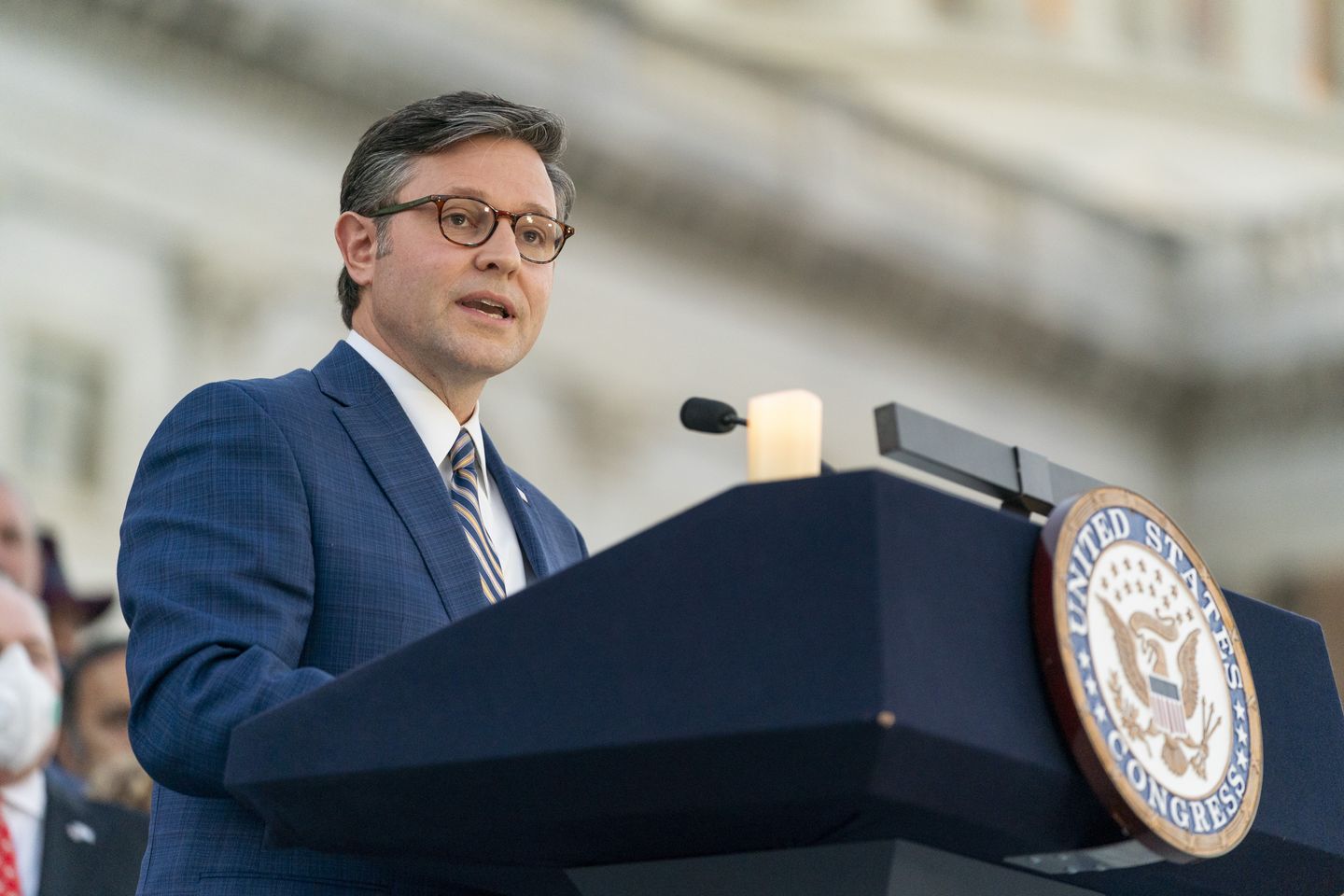
Speaker Mike Johnson has not yet produced a stopgap bill to prevent a partial government shutdown, and the deadline to fund the government is approaching next week.
The time extension granted by the previous stopgap bill will expire on Nov. 17. Top Republicans are confident that Mr. Johnson will introduce a bill by the end of this week, but the details of the bill are still unknown.
Mr. Johnson, a Louisiana Republican, is considering two options: a “clean” stopgap bill or a two-step approach that splits the deadlines to fund the government into January and February.
Like his predecessor, Rep. Kevin McCarthy, Mr. Johnson is facing challenges within the GOP in passing spending bills. Some conservatives are withholding support for a stopgap bill unless it includes policies that will not be accepted in the Senate. Additionally, there are lawmakers who will not support a short-term bill, and the Democrat-led Senate will only accept a measure without policy provisions that continues funding at current levels.
However, conservatives who were skeptical of former Speaker McCarthy’s approach are willing to give Mr. Johnson more flexibility due to the limited time he has had to solve the funding issue and because they trust him more than Mr. McCarthy.
Mr. Johnson seems to be leaning towards the two-step approach, but he has not disclosed his exact plans. Lawmakers expect a vote on the bill by Tuesday, which means the speaker must reveal it by Saturday to overcome procedural hurdles in the House.
Rep. Andy Harris, a Maryland Republican, proposed the laddered approach to attract those who are hesitant to vote for a stopgap bill. The House Freedom Caucus, of which Mr. Harris is a member, also supports this idea.
Mr. Harris explained that the intention would be to prioritize high-priority bills, like defense spending, in the first deadline and work on them with the Senate as soon as possible.
House Rules Committee Chair Tom Cole of Oklahoma advised Mr. Johnson to keep the stopgap bill as clean as possible to allow lawmakers more time to finish work on the remaining spending bills.
Senate Democrats and Republicans have expressed opposition to the laddered approach, deeming it overly complicated. Senate Majority Leader Charles E. Schumer has initiated the process of advancing a Senate stopgap, which could cause delays in the House.
House Democrats also do not support a laddered stopgap bill. House Minority Leader Hakeem Jeffries called the idea a joke and believes that pursuing a multi-step bill will lead to a partial shutdown.
Rep. Thomas Massie, a Kentucky Republican who voted against both stopgaps proposed by Mr. McCarthy, stated that he could support a laddered bill but prefers a yearlong stopgap. He also successfully advocated for a 1% across-the-board cut in spending in the debt ceiling deal, which will take effect in January.
If Mr. Johnson chooses the laddered approach, spending may be spared from the 1% cut.
Mr. Massie expressed concern about the discontinuities caused by expired funding and advised Mr. Johnson to proceed cautiously.


